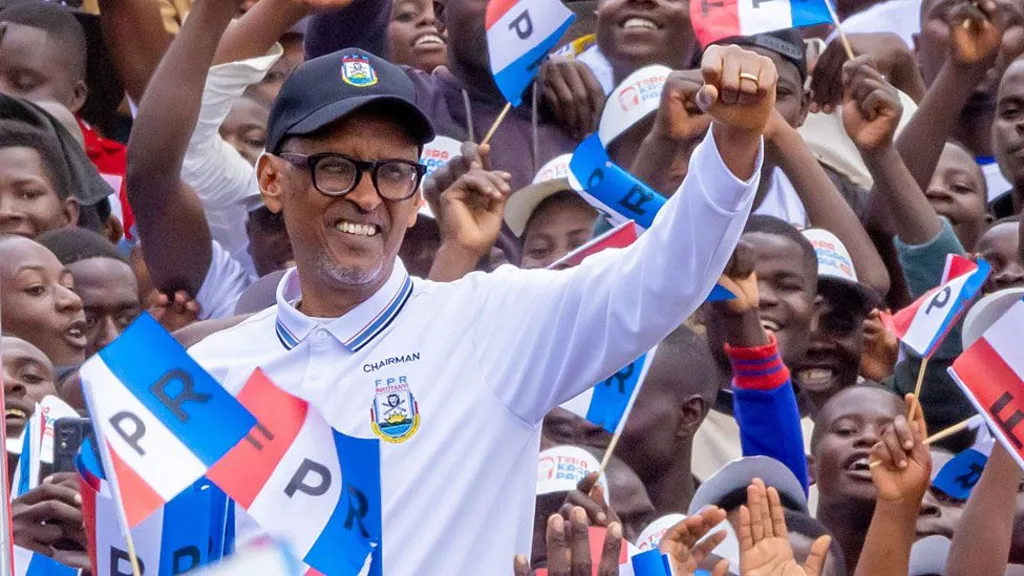Rwanda’s President Paul Kagame has surpassed his previous records, winning Monday’s election with over 99% of the vote, according to full provisional results. The 66-year-old had previously won the 2017 election with 98.63% of the vote, which was higher than his 93% win in 2010 and 95% in 2003.
Critics argue that Kagame’s overwhelming majorities are expected due to his authoritarian rule. However, his supporters attribute these results to his significant popularity, citing the stability and economic growth Rwanda has experienced under his leadership.
Mr. Kagame, a former rebel commander, led his forces to power in 1994, putting an end to a genocide that killed around 800,000 people in just 100 days. Known as Rwanda’s “99% man,” he seeks to extend his nearly three-decade-long rule.
The electoral commission disqualified at least three presidential candidates, including some of his most outspoken critics, from running. It permitted two candidates—Frank Habineza of the Democratic Green Party and independent Philippe Mpayimana—to compete against him.
They received 0.53% and 0.32% of the vote, respectively, performing worse than in the 2017 election when their combined vote exceeded 1%. Voter turnout was notably high, at 98%, according to the electoral commission.
Clementine de Montjoye of Human Rights Watch remarked that Kagame’s unprecedented score of over 99% in the election highlights the severely restricted political space for the opposition in Rwanda today, as reported by AFP news agency.
She added that the result does not bode well for those aiming to engage in legitimate and credible opposition activities. However, Kagame’s victory was praised by Uganda’s President Yoweri Museveni, who stated that his re-election was a testament to the trust and confidence Rwandans have in his leadership.
Despite ongoing high youth unemployment, Rwanda remains one of Africa’s fastest-growing economies. During his campaign, Kagame pledged to protect Rwanda from external threats amid tensions with the Democratic Republic of Congo and Burundi.

